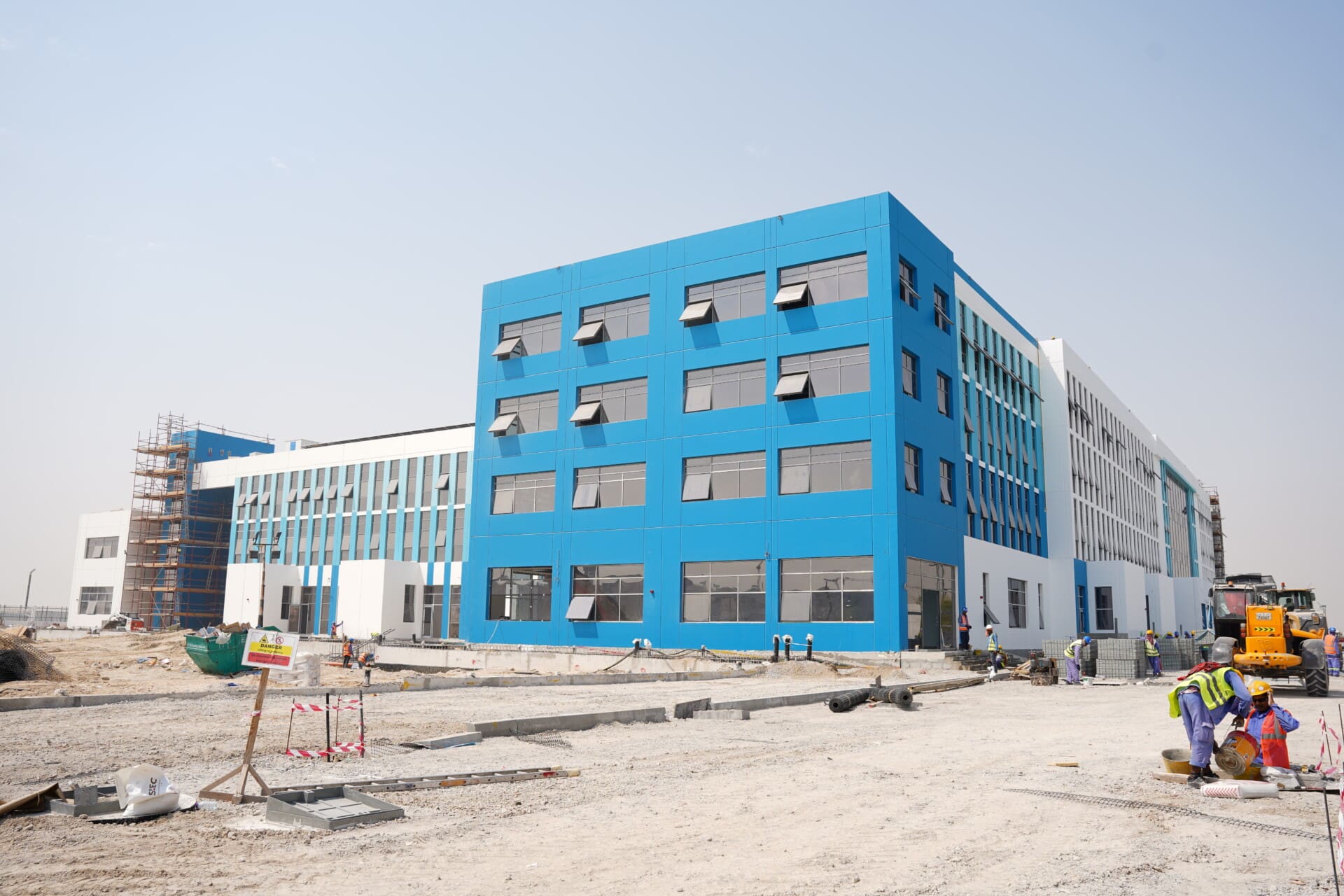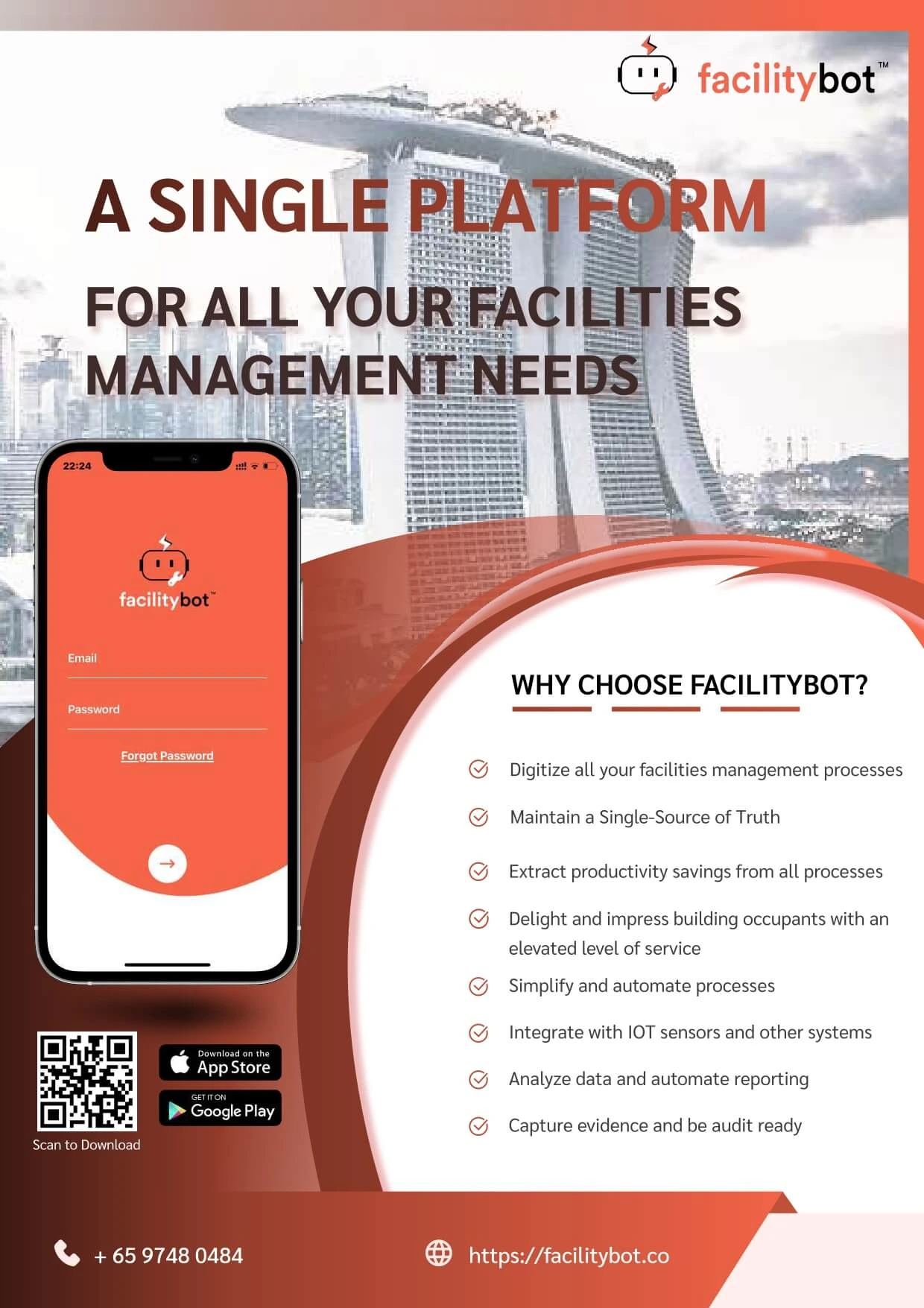Facility management in 2025 has become far more data-driven than ever before. Every building, system, and asset generates a wealth of information — from HVAC performance and energy consumption to work order completion rates and tenant satisfaction. But without the right tools, that data remains underutilized.
Enter AI-driven analytics. Through artificial intelligence and machine learning, modern facility management software can now analyze large data sets to uncover hidden patterns, predict issues before they happen, and optimize operations for efficiency and cost savings.
With solutions like FacilityBot, organizations are transforming raw facility data into actionable insights that improve maintenance planning, asset utilization, and decision-making.
What is AI Analytics in Facility Management?
AI analytics in facility management refers to the use of artificial intelligence and data analysis tools to process, interpret, and visualize operational data. Unlike traditional reporting, which focuses on what has already happened, AI analytics focuses on why it happened and what will happen next.
FacilityBot and similar AI-powered platforms combine real-time monitoring, predictive algorithms, and historical data to generate insights that help facility managers make smarter, faster decisions.
Key applications include:
- Predicting equipment failure before it occurs.
- Optimizing preventive maintenance schedules.
- Analyzing energy usage for sustainability.
- Tracking workforce productivity and performance.
- Improving space utilization and occupant comfort.
Why Data Alone Isn’t Enough
Many facility managers collect vast amounts of data — yet struggle to extract meaningful insights. Spreadsheets and manual reports cannot identify complex patterns across multiple systems or predict potential disruptions.

AI analytics solves this by:
- Consolidating data from multiple systems (HVAC, lighting, IoT sensors, work orders).
- Detecting anomalies that signal inefficiencies or faults.
- Forecasting trends for maintenance, energy usage, and resource planning.
In essence, AI transforms data from being reactive to predictive, empowering facility teams to act before problems escalate.
How FacilityBot Uses AI Analytics for Smarter Facility Management
FacilityBot is a leading AI-powered facility management software that helps organizations make sense of their operational data. Through advanced analytics and real-time dashboards, it provides facility managers with instant visibility into key performance metrics.
Here’s how FacilityBot applies AI-driven analytics:
1. Predictive Maintenance Insights
FacilityBot’s AI models analyze equipment performance data to predict potential failures. Instead of waiting for breakdowns, managers can schedule maintenance proactively — minimizing downtime and extending asset life.
2. Work Order Optimization
The platform evaluates historical maintenance requests, technician response times, and resolution rates to optimize workforce allocation and task prioritization.
3. Energy Efficiency Monitoring
FacilityBot tracks real-time energy usage across facilities. AI analytics identify inefficiencies in lighting, HVAC systems, and other utilities — helping organizations reduce costs and carbon footprint.
4. Occupant Feedback Analysis
Using built-in feedback tools and AI text analytics, FacilityBot captures tenant sentiment to highlight recurring issues and measure service quality over time.
5. Performance Dashboards
FacilityBot’s interactive dashboards visualize complex facility data, making it easy for managers to identify trends, compare KPIs, and support strategic decisions.
By using ai analytics in facility management, FacilityBot helps enterprises bridge the gap between data collection and actionable intelligence.
Benefits of AI-Driven Analytics in Facility Management
1. Smarter Decision-Making
AI turns unstructured facility data into insights that drive informed decisions — from budgeting and staffing to preventive maintenance strategies.

2. Cost Reduction
Predictive analytics identifies energy waste, underperforming assets, and inefficiencies, helping organizations reduce operational costs by up to 20%.
3. Improved Asset Reliability
By forecasting potential issues, AI-driven analytics minimize unexpected breakdowns, ensuring assets run smoothly and last longer.
4. Enhanced Sustainability
AI analytics track carbon emissions and resource consumption, helping organizations meet sustainability targets and comply with ESG reporting standards.
5. Boosted Productivity
With automated insights and reports, facility managers spend less time on manual data analysis and more time improving operational performance.
The Role of AI Analytics in Predictive Maintenance
Predictive maintenance is one of the most impactful use cases of ai analytics facility management. By continuously analyzing sensor data and maintenance logs, AI models can detect patterns that indicate equipment degradation.
For instance:
- A sudden increase in vibration data might signal an upcoming motor failure.
- A gradual rise in temperature could suggest filter blockage in HVAC systems.
FacilityBot leverages these analytics to automatically flag anomalies, alert technicians, and recommend preventive actions. This proactive approach helps reduce unplanned downtime, increase reliability, and save repair costs.
How AI Analytics Supports Data-Driven Facility Strategies
Beyond day-to-day operations, AI analytics enables strategic facility planning. Decision-makers can use long-term insights from platforms like FacilityBot to:
- Identify underutilized spaces for optimization.
- Allocate budgets based on asset performance data.
- Prioritize sustainability initiatives using data-backed evidence.
By aligning operational insights with strategic goals, AI analytics empowers organizations to scale efficiently and sustainably.
The Future of AI Analytics in Facility Management
As buildings become smarter and more connected, the role of AI analytics will expand. Future facility management systems will integrate deeper with IoT sensors, digital twins, and automation tools — allowing real-time visibility and control across all assets.
Here’s what’s coming next:
- Automated Decision-Making: AI systems will autonomously schedule maintenance, adjust HVAC systems, and balance energy loads.
- Digital Twin Integration: Facilities will use virtual replicas to simulate performance scenarios and test energy-saving strategies.
- AI-Driven ESG Reporting: Advanced analytics will automate sustainability tracking and reporting for compliance.
FacilityBot is already moving toward this future by continuously evolving its AI analytics engine — making facility management more predictive, efficient, and sustainable.
Why Choose FacilityBot for AI-Driven Facility Analytics
FacilityBot is designed to help enterprises harness the power of AI analytics across every aspect of facility management. With its intuitive dashboards, automation capabilities, and integration-friendly design, it transforms how organizations handle data.
Key advantages include:
- Unified data visualization across all facilities.
- Real-time fault detection and performance tracking.
- Predictive insights for cost and energy optimization.
- Integration with communication tools like WhatsApp, Teams, and Slack.
With FacilityBot, you don’t just collect data — you act on it.
Conclusion
AI analytics in facility management is no longer a luxury; it’s a necessity for organizations aiming to stay efficient, compliant, and sustainable. Platforms like FacilityBot are redefining how facility teams interpret data — transforming it from static reports into actionable intelligence.
By leveraging AI-driven insights, facility managers can predict failures, optimize operations, and make smarter decisions that drive long-term success. In an era defined by digital transformation, FacilityBot stands at the forefront — helping businesses turn every data point into an opportunity for improvement.




